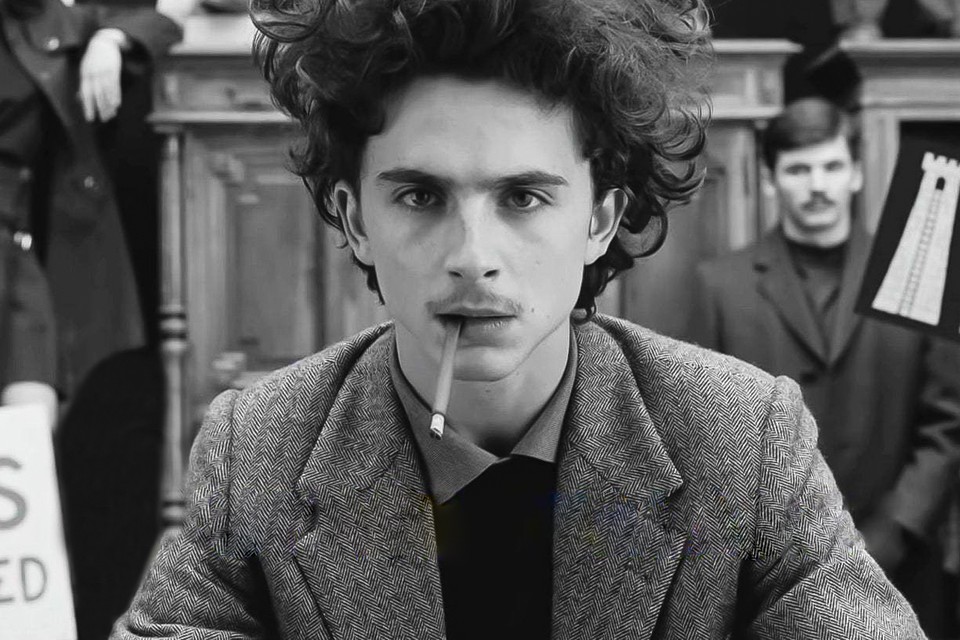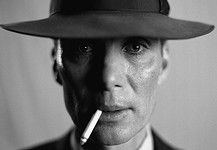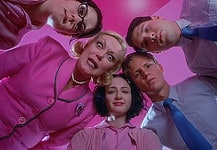Last Updated on November 9, 2021, 7:47 PM | Published: November 9, 2021
We writers and journalists are a particular bunch. We spend most of our time standing on the outside of things, always right along the edges, and we watch and we take notes and then we often spend way too long obsessively looking for words. For the right words. The perfect words.
Writer/director/tweed enthusiast Wes Anderson’s new film “The French Dispatch (of the Liberty, Kansas Evening Sun)” is about exactly this. It’s a love letter to writers, an exercise in writing for writing’s sake, and an examination of the simultaneous endless possibilities and finite limitations of the written word.
Unsurprisingly, it’s nearly impossible for a writer to be fully unbiased about a film that so clearly caters to the exact preoccupations of a writer’s mind, and so to proceed under a pretense of objectivity would be both pointless and disingenuous.
So I’m going to do something that I very rarely do in this column, or actually in any writing: I’m going to tell you about myself and I’m going to speak to you simply, directly, and openly as myself and as a writer.
I, personally, am a huge fan of Wes Anderson’s work. I make a point of seeing every new film that he makes, and I tend to revel in his singular, yet often imitated style and mentality.
Yes, I believe that my own history as a working writer plays a huge part in my opinion of this film, and anyone with a similar history is likely to have a much higher chance of enjoying it, but it would be categorically incorrect to say that you have to be a writer to “get it.”
Indeed, it’s not a writing background that will determine someone’s enjoyment of “The French Dispatch,” but a love of words.
Simply and directly, I loved this movie.
It’s written by people in love with writing for people in love with writing. It is gloriously and consciously overwritten, always reaching for more words, for bigger words, always aiming over your head.
The vocabulary on display practically dares you line by line to claim that you understood every word. The dialogue is a five-course meal of language, stuffing you to exhaustion with words, names, places, descriptions, and references, each more flowery than the next.
But to expect anyone else to enjoy it as much as I did is tricky, not because I’m a writer and the film is about writers, but because of what I personally look for in a Wes Anderson film.
Look up reviews of “The French Dispatch” practically anywhere online right now and you’re likely to be treated to the same sentiment over and over and over again. Nearly every review, both professional or otherwise, contains some variation of “the most Wes Anderson film that Wes Anderson has ever made.”
There comes a point in the career of any true auteur when their work can seemingly only be compared to itself. Similar sentiments are commonly used to describe other filmmakers like David Lynch and Quentin Tarantino as well, leading a reader to conclude that their works exist only in some kind of self-referential vacuum, never evolving and never risking their own carefully constructed styles and tropes. But to believe this completely misses the point of their work and willfully ignores any major evolution or risks that they may take.
In actual fact, “The French Dispatch” employs loads of elements that are at the very least rare for Anderson’s films. There is a great deal of nudity. There is a great deal of violence. The stories on display throughout the film deal with poverty, prison, guns, decapitation, prostitution, kidnapping, revolution, and death.
Any of these issues (maybe not decapitation) could have appeared before in Anderson’s work, but none are what come to mind when simply declaring that a film is very “Wes Anderson.” That label is generally used to denote twee costuming, pastel coloring, symmetrical framing, pseudo-European technique, and general awkwardness.
Are those things also all in full force throughout “The French Dispatch?” Well, of course. But to expect that this film “feels” in any way like “Rushmore” or “The Life Aquatic” or “The Grand Budapest Hotel” (three films that are already wildly different from one another) would be, at least in my opinion, wholly inaccurate.
Let’s actually look at “Grand Budapest Hotel” for a moment. It may very well be Anderson’s most acclaimed and most respected film, with a Best Picture nomination at the Oscars and countless reviews declaring it to be a remarkable and technical feat of filmmaking. Many fans to this day consider it to be his masterpiece.
And yet, I always felt like something was missing in it.
“The Grand Budapest Hotel” has everything that one would expect from a Wes Anderson film, the colors, the costumes, that camera work and framing, the unmatched sets and production design, but I never felt like it really had the one thing that makes Anderson’s films for me.
He is perhaps better able than any other filmmaker to give you a kind of final emotional thesis in his stories. His films each rely on a single scene or even a single line of dialogue that acts as a cohesive element for the story, bringing it all together, making its intentions clear, and creating a point for everything.
He always gives you a reason for why the film exists in the first place.
Maybe it’s just me, but I always felt like “Grand Budapest Hotel” was lacking that. It has every other superficial element of a Wes Anderson film, but that one emotional capstone is the real deciding factor in what makes something “feel” like Anderson’s work for me.
“The French Dispatch” not only includes that capstone, and not only pinpoints it again and again in each of its separate-but-interconnected stories, but the entire film itself is about the search for it and the necessity of that emotional capstone in storytelling.
There is a tale of a despondent prisoner that creates incomparably beautiful artworks. There is a tale of a young man leading a revolution against boredom and expectations. There is a tale of a police commissioner’s personal chef and his role in a harrowing kidnapping attempt. All of these stories center on the small, sad, fictional French town of Ennui (get it?,) all are framed by the same, single obituary, and all are explorations of a journalist’s perspective and role in the stories they are telling.
Each story is about finding words to describe visual art or revolutionary passion or flavors in food.
More importantly, each tale, no matter how “Wes Anderson” it may or may not be in its filmmaking, perfectly finds its way to that emotional thesis, that reason for having been written.
As a writer, that’s the thing we search for. That’s the reason that we obsess over finding the perfect words.
I really believe that this movie finds them, and as a lifelong fan of his work, I really believe that this one is Wes Anderson’s masterpiece.
It may seem like a crazy, disjointed, and overwritten attempt at making a movie that feels like a magazine, but take it from me, there has possibly never been another film that so perfectly captures what it is like to be a writer, and how it feels to be a lover of words.
“The French Dispatch” is now playing across OKC at Harkins Bricktown, Cinemark Tinseltown, and Rodeo Cinema in Film Row.
Brett Fieldcamp has been covering arts, entertainment, news, housing, and culture in Oklahoma for nearly 15 years, writing for several local and state publications. He’s also a musician and songwriter and holds a certification as Specialist of Spirits from The Society of Wine Educators.











